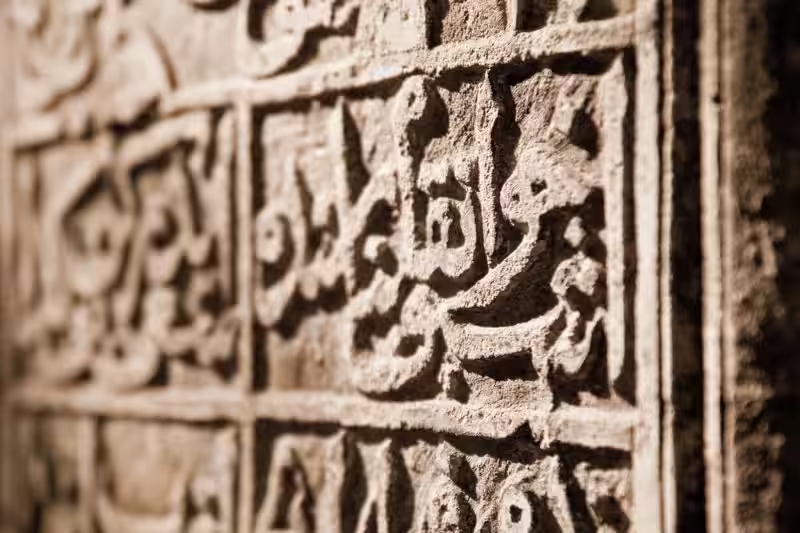
The Arabic language, a rich tapestry woven with history and culture, often presents unique linguistic intricacies that captivate those who delve into its depths. Among these captivating elements is the ubiquitous prefix “al,” a seemingly simple word but one that holds profound meaning and reveals fascinating insights into Arabic names and their origins.
Understanding the “Al” Prefix: More Than Just “The”
Imagine encountering a name like “Ali Al-Masri.” While the translation of “Ali the Egyptian” might initially come to mind, “al” in this instance transcends a mere definite article. It’s a beacon illuminating a person’s roots, their connection to a specific place, or even a defining characteristic.
“Al” as a Window into Ancestry
In many Arabic names, “al” functions as a definite article, akin to “the” in English. This can be seen in names like “Abu Hamza al-Muhajer,” signifying “the emigrant.” This use of “al” sheds light on a person’s origin, revealing their ancestral ties to a particular region or city. For instance, “Saddam al-Tikriti” translates to “Saddam, the guy from Tikrit,” indicating his birthplace in the Iraqi city of Tikrit.
Unveiling Professions and Traits
Beyond geographic origin, “al” can also highlight a person’s profession or even their character traits. “Yakoub Al Jarrah” translates to “Jacob the Surgeon,” while “Salim Al Dhaki” means “Salim the smart one.” These examples showcase how “al” acts as a modifier, providing additional information about the individual.
“Al” in First Names: A Connection to Divinity
In some instances, “al” forms part of the first name itself, often conveying a deep spiritual connection. “Salah Al Din,” meaning “righteousness of the faith,” is a prime example. It suggests a strong devotion to religious principles, while “Abdulrahim” translates to “servant of the Merciful,” signifying servitude to God.
“Al” as a Family Lineage
Beyond its role as a definite article, “al” can also signify a broader sense of belonging, indicating familial ties and tribal affiliations. In this context, it’s often pronounced with a longer “a” sound, sometimes transcribed as “Aal.” This distinction is crucial for understanding its deeper meaning.
“Aal” – A Marker of Tribal Identity
“Abdelaziz Aal Saud” exemplifies the use of “Aal” as a tribal marker. It indicates a connection to the Saud tribe, the founder of modern Saudi Arabia. Similarly, “Hamad Aal Thani” highlights a connection to the Thani tribe, the former Emir of Qatar. These names serve as a powerful reminder of lineage and tribal heritage.
“Al” in Quranic Chapters: A Legacy of Ancestry
The use of “al” in names can extend to the realm of religious texts. “Al Omran,” the third chapter of the Quran, signifies “The family/tribe of Omran,” showcasing how “al” can also be used for specific groups within a larger framework of religious text.
Navigating the Nuances of Pronunciation
While “Al” is the dominant pronunciation in the Levant and Gulf regions, variations exist across the Arabic-speaking world. “El” is prevalent in Egypt and parts of North Africa, while “La” is sometimes used in the Maghreb region (Tunisia, Algeria, Morocco). This nuanced pronunciation adds another layer of complexity to understanding the meaning of “al” in different contexts.
“Al”: A Window into Arabic Culture
The prefix “al” is more than just a word; it’s a key to understanding Arabic culture and its rich history. Its use in names reveals a deep connection to ancestry, profession, character, and even religion. By delving into the meaning of “al,” we gain valuable insights into the cultural tapestry that shapes Arabic identity.
Frequently Asked Questions about the Meaning of “Al” in Arabic Names
What does “Al” mean in Arabic names?
“Al” in Arabic names has two main meanings:
- Definite article: Like “the” in English, it specifies a noun, often indicating the person’s origin, profession, or character trait.
- Family, tribe, or clan: It signifies lineage and tribal affiliation, pronounced with a longer “a” sound (sometimes transcribed as “Aal”).
How do I know which meaning “Al” has in a name?
Pay attention to the context and pronunciation. “Al” as a definite article is pronounced with a short “a” sound, while “Aal” for family/tribe has a longer “a” sound.
Can “Al” be part of a first name?
Yes, “Al” is often part of a first name, often indicating a relationship with God.
Are there variations in the pronunciation of “Al”?
Yes, “Al” is pronounced differently in different regions:
- Al: Levant and Gulf region
- El: Egypt and some North African countries
- La: Maghreb region (Tunisia, Algeria, Morocco)
What insights can the meaning of “Al” provide about a person?
It can offer valuable insights into their heritage, profession, or character traits.
- “Al” is a common element in Arabic names.
- It can mean “the” (definite article) or “family, tribe, or clan”.
- “Al” as the definite article is used to specify a noun.
- In names, it can indicate origin, profession, or character trait.
- Examples of “Al” as definite article: Ahmed Al Masri (Ahmed the Egyptian), Yakoub Al Jarrah (Jacob the Surgeon), Salim Al Dhaki (Salim the smart one).
- “Al” can also be part of a first name, indicating a relationship with God.
- Examples of “Al” in first names: Salah Al Din (righteousness of the faith), Abdulrahim (servant of the Merciful).
- “Al” as “family, tribe, or clan” is pronounced with a longer “a” sound.
- It signifies lineage and tribal affiliation.
- Examples of “Al” as family/tribe: Abdelaziz Aal Saud, Hamad Aal Thani, Al Omran.
- “Al” is pronounced as “Al” in the Levant and Gulf region.
- “El” is common in Egypt and some North African countries.
- “La” is sometimes used in the Maghreb region.
- Understanding the meaning of “Al” can reveal insights into a person’s heritage, profession, or character.
- Paying attention to context and pronunciation is crucial for understanding the meaning.
- “Al” can be a valuable tool for understanding Arabic culture and names.
- “Al” is a common prefix in Arabic words.
- It can be used to form proper nouns like names and places.
- “Al” is a linguistic element with cultural significance.
- It reflects the importance of family, tribe, and origin in Arabic society.
- “Al” can be a source of confusion for non-Arabic speakers.
- Understanding its meaning can enhance communication and cultural understanding.
- “Al” can be used to distinguish between individuals with the same name.
- It can add a layer of meaning to Arabic names.
- “Al” can be a symbol of cultural identity.
- It connects individuals to their roots and heritage.
- “Al” is a fascinating aspect of the Arabic language.
- It demonstrates the richness and complexity of the language.
- It highlights the importance of cultural sensitivity in communication.
- “Al” is a reminder that language is more than just words.
- It is a window into the cultural practices and beliefs of a people.








